Scott DeFilippis, PTO Treasurer
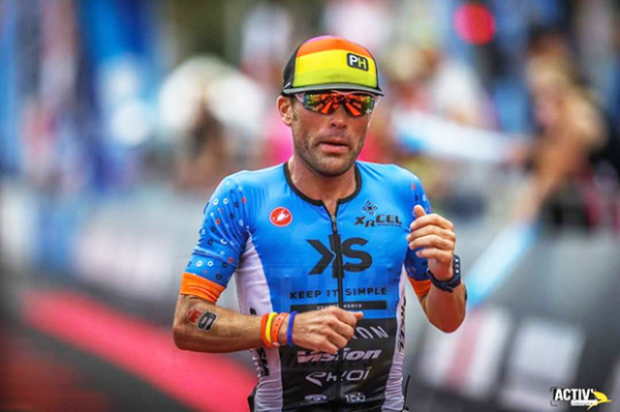
Scott DeFilippis is a long course triathlon veteran whose career highlights include a 2nd place at 2013 Challenge Penticton, 2nd place at 2014 Challenge Atlantic City, and 3rd at Ironman Boulder. His signature races are the toughest – including several cracks at Embrunman and three 3rd place finishes at the Alpe d’Huez Triathlon. He is known for his first rate runs including an Ironman marathon PR of 2:43. He's now also serving as the Treasurer of the PTO.
ST: What is your relationship with Brett Sutton?
Scott: I was a part of Sutton’s team TBB from 2010 until its demise in 2013. At the time I was helping Brett and Alex Bok run the coaching business. Those 2 gave me a chance to nurture my career and if not for them I might have lasted only a year or two chasing my dream.
ST: From that experience, what did you learn about the business of triathlon – how to make a living, how the top organizations including Ironman, Challenge, ITU, relate to the athletes, how pro triathletes obtain and maintain sponsorships?
Scott: The whole idea behind team TBB was to offer athletes an opportunity to earn not just a salary but to also have the potential to earn from several streams of income: coaching, selling equipment, nutrition, apparel, and merchandise. Thus you were not depending solely on just prize money, bonuses and retainers if you were so lucky to have some. Brett has been in the sport pretty much from the beginning and he recognized more than a decade ago that purses were only going down. Now here we are in 2020 and the purse in Kona has not gone up in over a decade, so what they were trying to create was unique and special. The sport had not and to this day does not have anything like it. That is why when Brett and Alex split, I sided with Alex because I felt the mission of team TBB was so important and we were so close to pulling it together. Unfortunately for everyone involved we realized very quickly that Alex + Brett was 1 +1 = 3 and without them working together, it went up in flames.
ST: Where are you now?
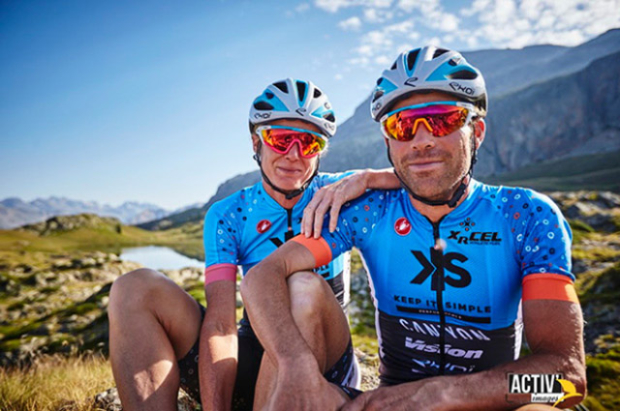
Scott: Since then, Carrie Lester and I have had to learn to play the sponsorship game ourselves and it took a while for us to form relationships. Now we are so grateful for all our sponsors that not only support us but our KIS Performance Team. It's not easy to earn a living as a pro in this sport and very few — the top 1% maybe — earn a proper living. Some have gone after the team route of basically creating a fan base that supports them. Others, like us, started a coaching business as we have with our partner Brad Williams. Then you have the entrepreneurs like Luke and Beth McKenzie and Sean Watkins and Heather Jackson who started their own apparel companies. Our model is not too dissimilar to what Brett and Alex were trying to do and we have ambitions of trying to fund a team like they did. But this Covid situation will set the industry back a long, long time. My point is, we've all had to get creative in order to survive.
ST: How are you and the athletes you coach dealing with the pandemic?
Scott: Our coaching business is called KIS which stands for KEEP IT SIMPLE. We preach balance of life, enjoyment of sport, and not allowing the sport to consume us or define who we are. This most certainly is a reflection of Brett Sutton's influence on me. So, we have taken expectations off the table. We have tried to stress training for quality of life and mental health. Now that most are back swimming, the training has a bit more structure but any and all expectations of race performances are dropped for the foreseeable future.
ST: How has COVID impacted your triathlon career and the careers of triathletes you know well?
Scott: You know Tim, it may have forced retirement on me. We will see, I'm 40 now and even though I am a little man, my body is starting to feel it. I still love the process of getting into super shape but that desire to race is fading and maybe that is because taking our coaching business to the next level is our future. I have ambitions of running a high performance squad, so at some point it's put up or shut up. Having said that, the past few years have been very special for me to train alongside my pro Athletes in Carrie, Manuel Kueng and just recently working with Adriano Englehardt. So, now that we are back swimming and have some more structure, I am pondering whether or not I carry on into 2021 or simply train for health and pleasure.
ST: How many share that thought?
Scott: I don't think I’m alone in feeling this way, I think we will find quite a few athletes call time in the next 6 months. The ones I am in contact with personally who still have years of earning potential in front of them, I encourage them to push on. Macca said it best when asked about retiring "Retire? Have you seen what the real world looks like? It ain't pretty!"
ST: What are your duties as a PTO Board member? What special experience do you offer?
Scott: I am the treasurer and thus sit on the board of directors. I am also a committee member of the newly formed Anti-fraud or Anti-doping committee. I am a no nonsense kind of person and I like to think I have a practical mind. For me this is not about any of today's athletes. I myself was more of a journeyman athlete, I've yet to win an Ironman and it doesn't look very likely now that my career is winding down. But this movement is for the pros of tomorrow, for future generations, it's not about any of us. We are not poor but we're not rich by any means. Carrie and I are 40 and we don't own our home, that biological clock is ticking and that's a scary financial situation. However, what we are is rich in life, in friends, in experiences, in memories and I want the future pros to have the same opportunities but not having to worry about the financial gamble that so many of us have taken and most have lost.
ST: How has the business plan of PTO differed from previous efforts at organizing pro athletes?
Scott: First of all, we have Charles Adamo running the ship. The business model, which includes the Collins Cup, was his idea. Others have had good intentions but if it wasn't for Charles we would never have come even close to pulling this together. I can remember the first time I met Charles. He came to Encinitas to meet a few of the industry folks in the neighborhood so he stopped by to pitch his idea to us. When he walked out of the house, I turned to Carrie and said, "This is the man we've been waiting for, he's the one that is going to finally change the sport." Time will tell if I was right but the PTO he is building is looking more than promising.
ST: The PTO offered a total of $2.5 million divided up to a large number of pro triathletes based on their current ranking to survive the pandemic recession. Why did PTO do it?
Scott: What Charles Adamo and our investor Mike Moritz at Crankstart did was pay the bonus that was going to be paid out at the end of the year, up front. They recognized very early on that athletes were not going to be able to earn for at least the first half of the year. Now, here we are and it's looking like we will lose the entire year. What they did was reward the athletes based on their past results up until March of this year and actually paid athletes based on their best ranking whether it was on January 1st or March 15th. For example Teresa Adams had a knockout performance at Ironman NZ and so she jumped way up the rankings. They rewarded her for that effort but didn't penalize the women she jumped as most didn't have a chance to race in 2020.
ST: How will this pay off eventually?
Scott: As the treasurer of the PTO it was my job to send the money to the athletes and I can tell you first hand from the emails we got from the athletes, it has gone a very long way for many! I don’t know if it will affect the bottom line in a negative or positive way but hopefully what it will do is get the athletes to finally buy into coming together as one collective unit so that we can move the needle.
ST: Was this done to establish credibility — that the PTO could actually achieve what it set out to do? Previous efforts fell apart – like the preceding PTU.
Scott: Not at all, it was done because it was the right thing to do. The members of the PTO are 50% shareholders in the business and without them we have no future so we needed to do something to keep them going for the short term.
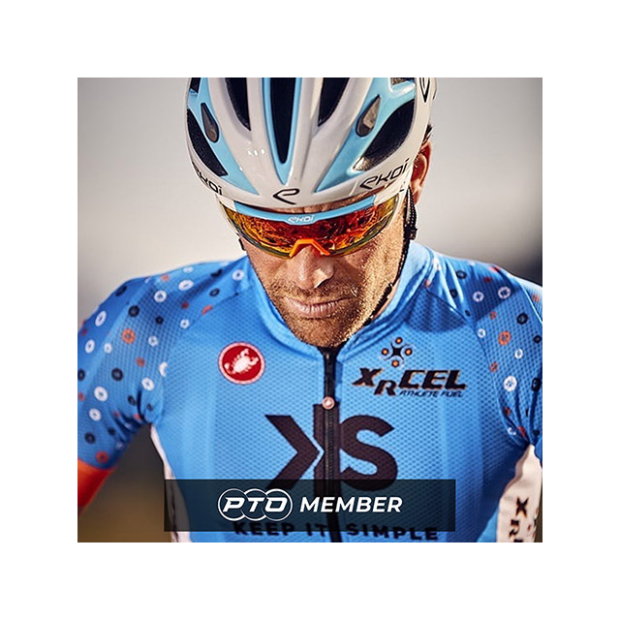
ST: How did the early PTO bonus payment affect all?
Scott: Well it's helped our household tremendously, Carrie was paid $50k for her world rank of 6. Now that's about a 1/3 or less of what she might have earned this year. But it certainly stopped the bleeding. I'm ranked 170-something, so you don’t get a bonus for that! But I did receive a stipend for the hours of work I have put in. And many of the emails of gratitude we have received from athletes let me know they are appreciative. I can speak for Manuel Kueng who is ranked just outside the top 50, that the $5k he received kept him going through the lockdown.
ST: Triathlon has a long history of a niche sport with a business model based on age group entry income. Why has the PTO decided to make a major investment in the competitors?
Scott: Because triathletes are the best athletes on the planet and there is a market out there with a desire to watch these incredible athletes on TV. I can remember when our pro representative at Ironman would routinely say, "Triathlon is not a sport for TV, nobody wants to watch an 8 hour race." I would shake my head because in my opinion he was 100% wrong. We are going to prove that with the right production and the right series of races, this sport will have a serious number of viewers.
ST: In the past, there have been several triathlons which have made a big splash with large prize purses with big payoffs to the winners. What has the PTO learned from these predecessors?
Scott: They were all following the age group entry fees, expo sales business model. Missing from that was the Ironman brand, with the exception of the His Highness Shaikh Nasser Bin Hamad Al Khalifa’s $1 million Triple Crown bonus. Without the Ironman brand, you can't survive unless you are Challenge Roth. The reason Challenge Roth is special and cannot be duplicated anywhere else in the world is because of the Bavarian people. I hope that Roth one day can host a PTO event as it will be the most incredible the sport has ever seen.
ST: Previous estimates on the total initial estimate of $10-20 million in PTO would need to fund a three to five year plan to achieve equilibrium? Is this realistic?
Scott: It's achievable if the economy can recover in the next 12 months. If not, we may be looking further into the future. But I believe the people behind this movement are doing this for the right reasons and will see this through.



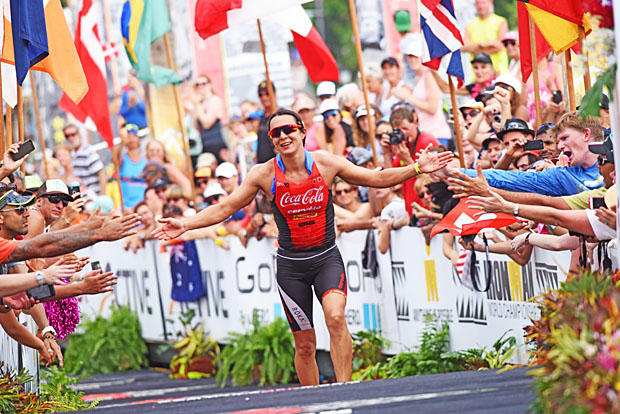
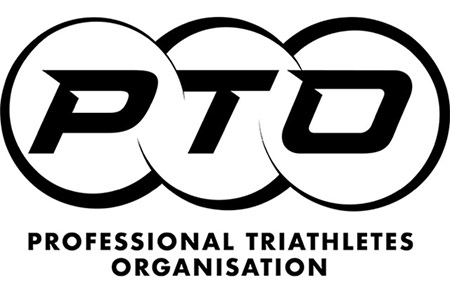
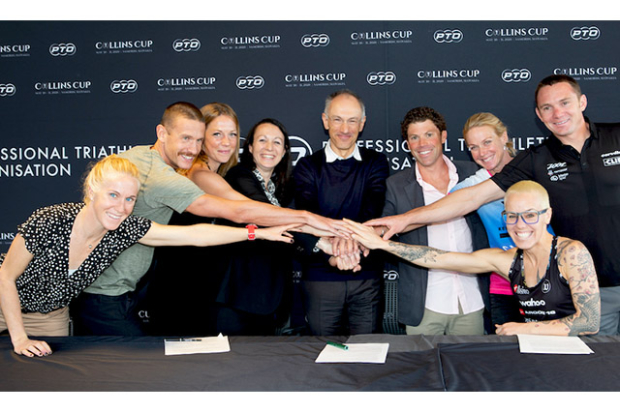

Start the discussion at forum.slowtwitch.com